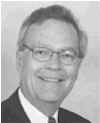|

|
|
Virginia’s
Many Voices
Do
you say “ote” (for “out”) or “abote”
(for “about”)? Does “four dogs” becomes
“fo-uh dah-awgs?” Chances are you are speaking
in what some linguists call the Virginia Piedmont
dialect. (See the Dialect
Map of American English.)
You probably hail from somewhere south of
Charlottesville,
west of Richmond and east of the Blue Ridge,
according to Clifton Potter, a Lynchburg College
history professor who is interested in the many
nuances of the Virginia accent. “Because if you go
to Roanoke,
it’s entirely different,” Potter told the
Lynchburg
News and Advance in
a
January 28, 2005
article by Margaret Goerig.
Roanoke
and parts farther west are at the northern edge of
the Southern Appalachian dialect. If you come from
western Virginia, you might drop your “g” with
any word ending in “ing,” a remnant of the
Scotch-Irish lilt of the area’s early inhabitants.
The
famous Tidewater accent, on the other hand, is a
part of the Southern Coastal dialect, quite similar
to the Virginia Piedmont. It roughly stretches along
the
James River
from Virginia Beach/Norfolk (“Nawfuk”) to a
little past
Richmond. Tidewater Virginians tend to call their mothers’ sisters
“ahnts” and the “ow” sound becomes a long
“o,” so that “house” becomes “hoose.”
They also pronounce “car” as “kyar."
It’s no coincidence that Virginia’s three major
southern dialects and their many regional variations
are geographically based. (Northern Virginia, of
course, is a melting pot of accents.) Dialects,
which include idiosyncratic words and phrases, as
well as accents, arise in part because of geographic
isolation. The southern accent in general developed
because the South was more agricultural and people
tended to move around less than up North.
The unique Virginia accents, a bit softer than other
southern neighbors, are sometimes attributed to the
regional English accents of early settlers, writes
Kirsten Bowen, reviewing a play based on early
Virginia settlers in the November 2004 American
Repertory Theater. The “distressed
cavaliers,” who had fought for Charles I in the
English Civil War in the mid-17th century
and then had to flee Oliver Cromwell’s
persecution, came to Virginia mostly from southern
and western England. They brought such terms as
favor (resemble), moonshine, skillet, and traipse,
that are no longer used in Great Britain, but still
crop up here 350 years later. Also, the Piedmont
“ote” and “abote” pronunciations are
considered quite similar to the British dialect
still spoken in England’s western counties today.
Many linguists fear that distinct regional dialects and
accents are fast disappearing, due to such factors
as immigration, a transient population and the
media. PBS journalist Robert McNeil addressed the
issue in a three-hour TV documentary last year,
“Do You Speak American?” He traveled through the
major speech regions in the U.S., including the
South, but concluded that Americans still value
local identity too much to adopt a homogenized
American dialect.
William Labov, a linguist at the University of
Pennsylvania, agrees. He is one of the authors of
the 1998 Telsur Project, in which 768 people across
the U.S. were interviewed and their speech patterns
analyzed. He believes that while some small, local
dialects are disappearing, differences in larger
areas are now stronger. Thus, as one contributor to
the blog “Virginia Rising” noted, the once
diverse cadences of the Appalachians have become
“generic NASCAR Southern."
Another linguist, Walt Wolfram, a professor at the
University of North Carolina, has found that people
have a much stronger connection with their dialects
then they did in years past. In the past, a heavy
regional accent was often considered a liability.
Recently, researchers were surprised to discover
that young residents of Smith Island, just over the
Virginia border in the Chesapeake Bay, have stronger
accents than their parents. They surmise that as
other aspects of the Bay culture decline, a new
generation is trying to hold onto its heritage.
Biographer James L. West III, author of William
Styron: A Life, found his Tidewater accent an
asset when he was interviewing people in Newport
News for his book. “It probably opened more doors
(and memories) than might have been the case if I
had come to the state with a different way of
speaking,” West said in an interview with Virginia
Libraries in 2000. (See An
Interview With James L. West III.)
In fact, it is not only linguists who are intrigued with
Virginia accents. Actors, voice coaches and other
dramatic types can access the International Dialects
of English Archive to hear four audio clips of
Virginians – two men and two women – reading the
same text. (See IDEA
-- Virginia Dialects.)
Author West found his accent in demand on the silver
screen, as well. When a film was made of a Styron
story, “Shradrach,” in 1998, the producers
brought West to New York for a day to work with star
Harvey Keitel, a native of Brooklyn, and Keitel’s
voice coach. Keitel learned the diphthongs – those
Virginia gliding vowels
quickly, the biographer said.
“The film is now out on video, so if you see it, remember
that Harvey Keitel has my accent,” West says.
NEXT
TIME: Virginia’s
Clear Skies and Stormy Weather
--
May 9, 2005
|
|
